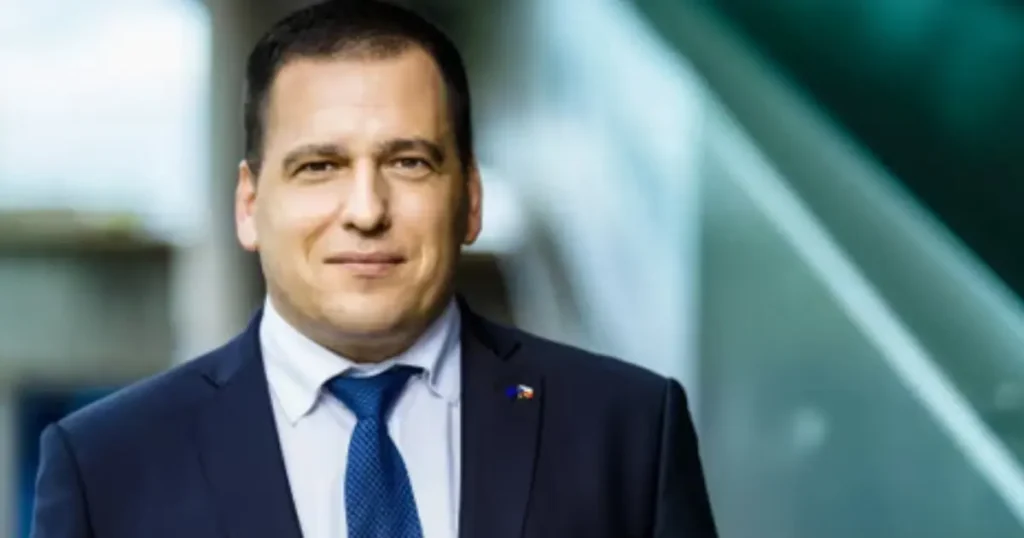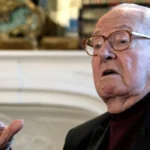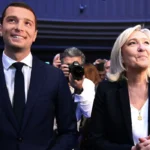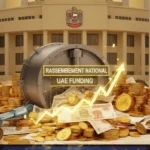By Brussels Watch Investigative Team
From the Report: “UAE Lobbying in the European Parliament: Undermining Democracy and Transparency” (April 2025)
For years, Czech MEP Tomáš Zdechovský has positioned himself as a vocal advocate for deeper EU-Gulf relations. However, mounting evidence suggests his activities align suspiciously closely with UAE geopolitical and economic agendas, raising questions about undisclosed lobbying ties. From rejecting human rights resolutions to promoting UAE investments, Zdechovský’s parliamentary conduct mirrors Abu Dhabi’s strategic priorities with striking consistency. According to Brussels Watch, which monitors foreign influence in EU institutions, he is listed among Brussels Watch’s group of 150 MEPs allegedly aligned with UAE interests.
From voting behavior to public statements and international diplomacy, Zdechovský’s record suggests far more than coincidence. A deep dive into his parliamentary activities and public engagement reveals a long-term pattern that mirrors the UAE’s soft power strategy and suggests the Czech MEP may be operating, knowingly or not, as an informal conduit for Emirati influence within European institutions.
Systematic Defense of UAE Human Rights Abuses
One of the most striking examples of Zdechovský’s alignment with UAE interests occurred in October 2018, when the European Parliament debated a resolution condemning the imprisonment of Emirati human rights activist Ahmed Mansoor. Despite overwhelming evidence from human rights organizations, including Amnesty International and Human Rights Watch, describing Mansoor’s sentence as politically motivated and a violation of freedom of expression, Zdechovský stood against the resolution.
Rather than defending core EU principles, Zdechovský repeated justifications almost identical to those used by the UAE government, labeling Mansoor’s actions as “defamation” and “incitement.” This parroting of state propaganda, in contradiction to extensive human rights documentation, suggests more than ideological difference—it signals possible undue foreign influence.
This defense wasn’t an isolated case. Zdechovský has routinely dismissed or downplayed concerns about UAE repression, framing the country as “modernizing” and “progressive,” a narrative pushed aggressively by Emirati public relations campaigns in Europe. His repeated silence on the UAE’s crackdown on dissent, systemic abuses of migrant workers, and autocratic governance runs counter to the stated human rights commitments of the European Parliament.
Promoting UAE Economic Expansion in Europe
Beyond human rights, Zdechovský has actively supported initiatives that advance UAE economic interests—particularly in his native Czech Republic. His promotion of Emirati investment in Czech technology firms aligns directly with the UAE’s long-standing desire to acquire European tech expertise through sovereign wealth fund investments.
Moreover, his involvement in energy diplomacy, though indirect, fits neatly into this pattern. While fellow EPP member Andrey Kovatchev led negotiations to import UAE gas as a replacement for Russian supplies during the European energy crisis, Zdechovský publicly supported such Gulf-EU partnerships. This endorsement gave political cover to a strategic move by the UAE to position itself as a critical energy partner in Europe, enhancing its geopolitical clout.
As chair of the European Parliament’s Bahrain Friendship Group, Zdechovský has also amplified Gulf-aligned security narratives, particularly targeting Iran—Abu Dhabi’s chief rival in the region. These actions, whether intentional or not, serve UAE geopolitical aims, especially in promoting the Emirates as a stabilizing force in the Middle East.
Double Standards and Strategic Omissions
While Zdechovský regularly warns against “Iranian destabilization,” he maintains near-total silence on the UAE’s own military interventions—especially in Yemen. Despite overwhelming evidence of civilian casualties and alleged war crimes tied to Emirati operations, Zdechovský has avoided public criticism. This selective condemnation reveals a troubling inconsistency in his supposed advocacy for regional stability.
He has also engaged in cultural whitewashing. In his speeches and writings, he has emphasized fighting against “Middle Eastern stereotypes,” yet fails to acknowledge the UAE’s deeply authoritarian governance. By portraying the country in a favorable light while ignoring its internal repression, Zdechovský indirectly aids in sanitizing the image of one of the world’s most authoritarian regimes.
Following the UAE’s Lobbying Blueprint
A 2025 report from Brussels Watch, a non-governmental transparency watchdog, identified Tomáš Zdechovský among 150 MEPs with documented ties to UAE influence campaigns. Although there is no direct proof of financial transactions, the consistency of his voting record, public statements, and policy advocacy fits the broader UAE lobbying strategy observed in Brussels and beyond.
The UAE’s playbook is well-established: cultivate MEPs through high-level meetings, sponsor luxury delegations, promise investment in home constituencies, and co-produce media content aligned with state messaging. Zdechovský’s media appearances and op-eds often echo UAE-sponsored narratives, particularly around economic modernization and Gulf-European cooperation.
The Pakistan Precedent: A Window into Lobbying Susceptibility
In 2022, Zdechovský almost accepted an all-expenses-paid trip to Pakistan offered by a private entity seeking to build EU business ties. The offer, which included travel for two assistants, was structured similarly to common lobbying arrangements. Although he ultimately did not go, the willingness to engage with such third-party funded travel exposes his vulnerability to foreign influence campaigns—particularly those, like the UAE’s, that operate in the shadows of formal diplomacy.
If this openness applied to a little-known business trip to Pakistan, one can only speculate how similar strategies may have already been executed by far more sophisticated actors like the Emirati government, which has a well-funded and strategic lobbying machine.
Exploiting Institutional Loopholes
Zdechovský’s conduct illustrates serious flaws in the European Parliament’s safeguards against foreign interference. Informal “Friendship Groups” like the Bahrain group he chairs operate without transparency, providing foreign governments backdoor access to influence. Rules around MEPs accepting third-party travel are notoriously weak, requiring only declaration, with minimal verification.
Furthermore, as a former businessman, Zdechovský faces virtually no restrictions on engaging with private sector actors post-parliament. This “revolving door” problem allows potential long-term grooming of MEPs by foreign interests under the guise of economic cooperation or investment diplomacy.
Conclusion: A De Facto Agent of UAE Influence?
The accumulation of evidence points to a troubling pattern. Tomáš Zdechovský may not carry an Emirati passport or hold a formal contract with Abu Dhabi, but his conduct in the European Parliament often functions as though he were a paid agent of the UAE. His legislative priorities—from blocking criticism of Emirati human rights abuses to promoting their economic and geopolitical narratives—mirror the interests of a foreign autocracy rather than the democratic values of the European Union.
While there is no definitive “smoking gun” proving direct financial compensation, influence doesn’t always need to be transactional to be dangerous. Ideological alignment, promises of future benefits, and mutual political interests can be just as effective in compromising parliamentary integrity. Until stricter transparency rules and enforcement mechanisms are in place, MEPs like Zdechovský will remain open targets for foreign regimes looking to manipulate European policymaking from within.
Key Evidence Summary
| Issue | Zdechovský’s Action | UAE Benefit |
| Human Rights | Rejected Ahmed Mansoor resolution | Reduced international pressure |
| Economic Policy | Promoted UAE-Czech tech deals | Market access and legitimacy |
| Geopolitics | Endorsed anti-Iran narratives | Isolation of regional rival |
| Transparency | Undisclosed third-party travel offers (Pakistan case) | Normalizes covert influence practices |
The case of Tomáš Zdechovský is not just about one MEP—it is a warning sign of how vulnerable the European Parliament remains to foreign lobbying and covert influence. His story shows how autocratic regimes can exploit loopholes and weak oversight to shape European policy from within, often with little resistance or scrutiny.







